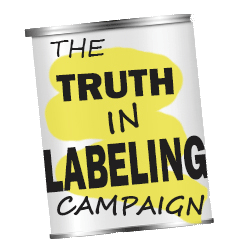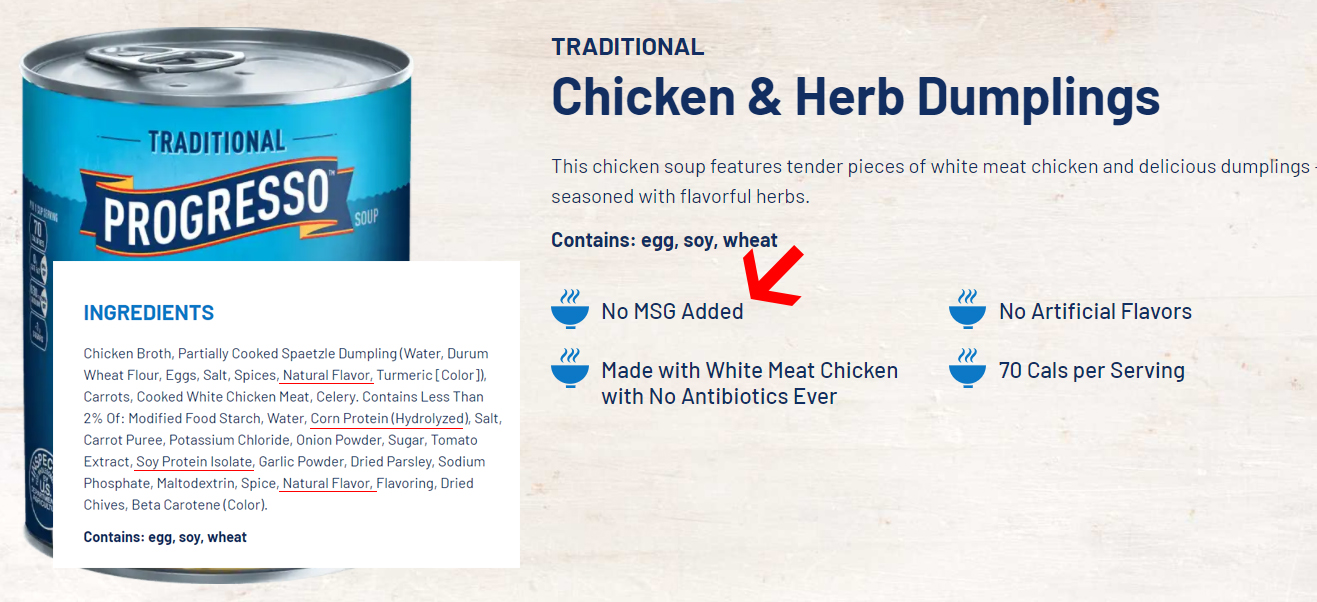Over a decade ago Progresso and Campbell’s duked it out over whose soup contained less MSG. Called the “soup wars,” the first shot was fired by Campbell’s in a 2008 ad that said more Progresso soups contained monosodium glutamate than Campbell’s. Soon after, Progresso took out a full-page ad in the New York Times stating that “Campbell’s has 95 soups made with MSG.”
Now, those big brands tell different stories about the MSG in their products.
Campbell’s has decided to focus on how safe MSG is. They tell us that “MSG occurs naturally in many foods, such as tomatoes and cheeses,” while in fact MSG is manufactured. It does not appear “naturally” anywhere.
Along with that, “for those looking to avoid MSG,” Campbell’s has “clean label” soups. Those are soups that contain the same toxic manufactured free glutamate that’s in MSG, which will be found in ingredients such as yeast extract, whey protein concentrate and natural flavoring, without any mention of the toxic glutamate in them.
Progresso has taken it a step further, claiming that its “focus on quality ingredients” means they’ve ditched using this excitotoxic additive all together.
Not exactly.
Progresso New England clam chowder is advertised as “no MSG added,” yet it contains natural flavor, yeast extract and whey protein concentrate. The brand’s Chicken & herb dumpling soup also states “No MSG added,” but contains natural flavor, corn protein (hydrolyzed), soy protein isolate and a second listing of natural flavor. Those are just two examples, we could go on and on, but you get the idea. All of those ingredients contain free glutamate.
Considering what’s contained in those soups, and how big and bold Progresso makes the claim of “No MSG added” one might think there’s no FDA regulation against such fraud. But there is.
Over 25 years ago the FDA issued this statement:
“While technically MSG is only one of several forms of free glutamate used in foods, consumers frequently use the term MSG to mean all free glutamate. For this reason, FDA considers foods whose labels say “No MSG” or “No added MSG” to be misleading if the food contains ingredients that are sources of free glutamates, such as hydrolyzed protein.”
Unfortunately, long ago the FDA stopped punishing or even scolding those who violate the Federal Food, Drug and Cosmetic Act – but that doesn’t make this any less a violation of FDA rules.
Campbell’s and Progresso are far from the only food manufacturers who engage in this “clean label,” “No MSG added” trickery. And soups are not the only products promoted this way.
So, when you pick up a product that states “No MSG” or “No added MSG,” you’ll know that you don’t even need to read the ingredient label.
Just put it back on the shelf.


